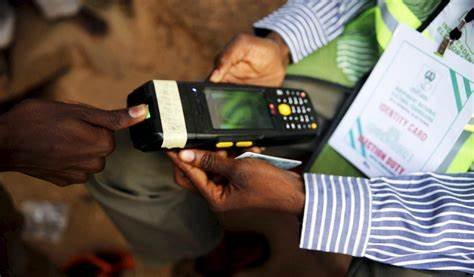The credibility of elections in Nigeria’s democracy has come under intense scrutiny, especially when compared to Ghana, which has successfully leveraged the Bimodal Voter Accreditation System (BVAS) to deliver transparent elections. Nigeria’s Independent National Electoral Commission (INEC) has faced criticisms following the controversial outcomes of the 2019 and 2023 general elections, with many Nigerians expressing distrust in the electoral process.
In contrast, Ghana’s recent presidential election showcased seamless electoral practices. Even before final collation, Vice President Mahamudu Bawumia conceded defeat to opposition candidate John Mahama. This stands in stark contrast to Nigeria’s experience, where post-election litigations and allegations of manipulation mar electoral credibility.
Why BVAS Thrives in Ghana and Faces Challenges in Nigeria
An analysis of both countries highlights critical differences in the implementation and effectiveness of BVAS. Seven factors underscore these disparities:
1. Integrity of Electoral Managers
- Ghana: The integrity of Ghana’s electoral officials has been the bedrock of its success. Transparent practices and accountability ensure BVAS operates as intended.
- Nigeria: Accusations of bias, corruption, and sabotage among electoral managers undermine the BVAS system’s credibility and public trust.
2. Appointment of Non-Partisan Officials
- Ghana: Electoral officers are appointed based on merit and neutrality, reducing political interference in election management.
- Nigeria: Partisan appointments are common, with some officials having political ties or affiliations, increasing the likelihood of manipulation and misuse of BVAS.
3. Retention of Experienced Leaders
- Ghana: The country values continuity by retaining credible leaders. Dr. Kwadwo Afari-Gyan, for instance, led Ghana’s Electoral Commission from 1993 to 2015, fostering institutional memory and trust.
- Nigeria: Proven leaders are often replaced, disrupting institutional knowledge. For example, electoral officials known for their integrity are frequently sidelined, eroding public confidence.
4. Accountability and Consequences
- Ghana: Electoral malpractice attracts severe penalties. Special courts handle election offenses swiftly, deterring unethical behavior.
- Nigeria: Accountability mechanisms are weak. Officials implicated in malpractice are often shielded or promoted, further emboldening bad actors.
5. Technical Preparedness
- Ghana: Electoral staff undergo rigorous training to manage BVAS effectively. Technical issues are swiftly resolved to ensure seamless operations.
- Nigeria: Inadequate training and insufficient technical preparation lead to frequent mishandling of BVAS. Allegations of deliberate sabotage, such as server failures during the 2023 presidential election, exacerbate public distrust.
6. Political Will and Stakeholder Commitment
- Ghana: Political leaders and stakeholders prioritize credible elections, ensuring BVAS fulfills its purpose.
- Nigeria: A lack of political will is evident, with reports of manipulation and server shutdowns undermining the electoral process.
7. Voter Turnout and Public Trust
Nigeria’s voter turnout has steadily declined, reflecting a growing lack of trust in the electoral system:
- 1999: 52.3% turnout (29.8 million votes).
- 2023: 26.7% turnout (24 million votes).
Factors like voter apathy, election-day violence, and logistical challenges have discouraged participation. The unfulfilled promises of BVAS and the INEC Result Viewing Portal (IReV) have further eroded confidence.
Key Lessons for Nigeria
To improve BVAS’s effectiveness and restore electoral credibility, Nigeria must address human-centered challenges:
- Integrity-Driven Leadership: INEC must be led by individuals of unquestionable integrity to build public trust.
- Non-Partisan Appointments: Electoral officials should be selected based on merit and neutrality, not political connections.
- Accountability Mechanisms: Strict penalties for electoral malpractice must be enforced to deter unethical behavior.
- Comprehensive Training: Electoral staff should receive rigorous training to handle BVAS and troubleshoot technical issues effectively.
- Strong Political Will: Stakeholders must prioritize credible elections over political gains.
The Road Ahead: 2027 as a Litmus Test
The 2027 general elections will serve as a crucial test of Nigeria’s commitment to electoral reforms. Without addressing systemic issues like partisanship, inadequate training, and lack of accountability, even the most advanced technologies like BVAS will fail to deliver credible elections.
Nigeria’s democracy hinges on public trust. Significant reforms rooted in integrity, transparency, and competence are essential to ensure elections reflect the true will of the people.
